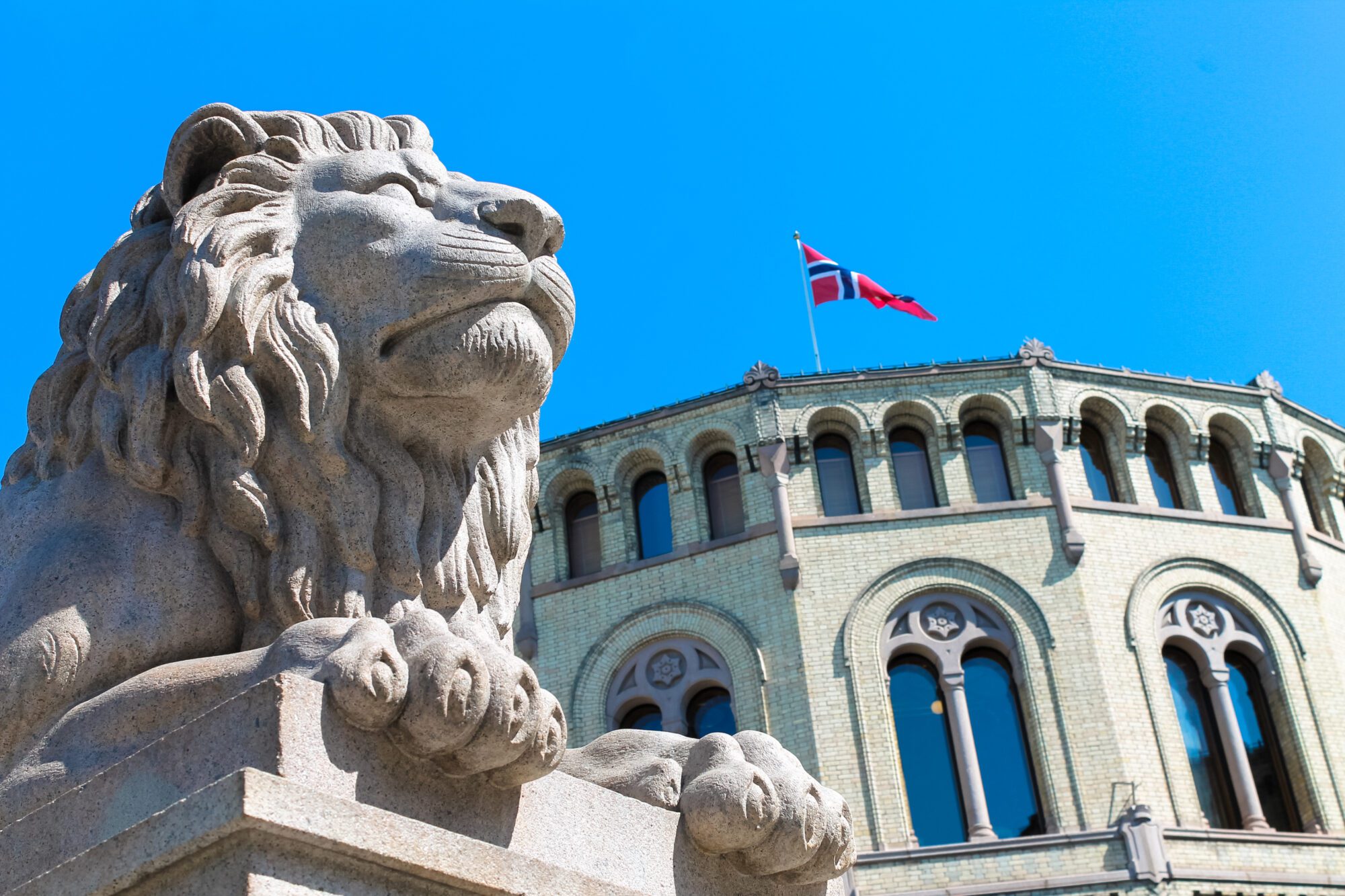
Norwegian Parliament, Oslo, Norway
An attempt to impose EU green legislation on Norway risks toppling Oslo’s ruling centre-left government after one cabinet minister decried attempts to undermine the country’s energy sovereignty.
The EU’s Clean Energy Package, which stipulates that at least 32% of energy production must come from renewables by 2030, is causing controversy in the Scandinavian country. The EU wants it to be incorporated into Norwegian law, but many in Norway are resisting.
Already, the brazen attempt to leapfrog Norwegian national sovereignty is causing unease at the heart of the Norwegian government. The Norwegian Supreme Court earlier ruled against a eurosceptic challenge that hoped to stop the directive from automatically becoming law.
Norway has been governed by a coalition between the Labour Party and the Centre Party since 2021. The latter is flatly against any concessions to the EU on ceding energy autonomy.
Centre Party Leader and Minister of Finance Trygve Slagsvold Vedum has declared the matter a red-line issue for his party, while Labour Party Minister of Petroleum and Energy Terje Aasland has visited Brussels to negotiate with Commission officials to lessen the blow to domestic control over energy production.
Opponents of the Clean Energy Package in Norway regard the EU green directives as an affront to democracy. They see it as a strategic way for Brussels technocrats to control Oslo’s energy policies, with particular animosity held for the EU energy regulator ACER.
Relations between Brussels and Norway over energy policy have soured over the past year due to a price hike blamed on EU regulation. One of Norway’s largest trade unions also voted to oppose EU edicts on the domestic energy market.
A major strategic cog in European energy production, Norway supplies 25% of total EU and UK gas demand and has experienced something of an export boom caused by sanctions on Russia. Norway’s natural resources are a key reason why it has never joined the EU.
Despite this, Norway has grown closer to the EU in recent years, especially over its financial backing of Ukraine through the EU’s Peace Facility. The Labour Party has maintained a strong europhile stance in contrast to their more eurosceptic coalition partners in the Centre Party.
